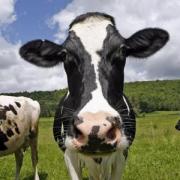 Vadodara, Apr 22: Mother Dairy, Gandhinagar, a unit of the Gujarat Co-operative Milk Marketing Federation (GCMMF) has now emerged as world's largest milk film manufacturer. And, the Indian dairy model of supplying daily milk to consumers in the form of pouches is now being adopted by the western world and even in neighbouring Pakistan.
Vadodara, Apr 22: Mother Dairy, Gandhinagar, a unit of the Gujarat Co-operative Milk Marketing Federation (GCMMF) has now emerged as world's largest milk film manufacturer. And, the Indian dairy model of supplying daily milk to consumers in the form of pouches is now being adopted by the western world and even in neighbouring Pakistan.
Marketers of Amul brand, GCMMF, has enhanced the milk film producing capacity of the Bhat village-based plant near Gandhinagar as the demand for pouched milk is fast increasing in the country.
The plant, which had a capacity of producing 8,000 metric tonnes of milk film, now can produce 17,000 metric tonnes a year with capacity expansion that was carried out with Rs 80 crore investment.
To top it, the homegrown dairy major has already decided to double the milk film producing capacity from the present 17,000 metric tones per annum to 34,000 metric tones per annum by next year.
If one puts all dairy brands together, a total of 8 crore milk pouches are sold daily across India. Of these, Amul counts for 1.80 crore milk pouches.
"Even after expansion, the entire capacity of our Gandhinagar plant is fully utilized for packaging our own products including milk, buttermilk and dahi. Now, we will be doubling this capacity," managing director of GCMMF R S Sodhi said.
"For the western world, supplying milk in pouches was earlier an unthinkable idea. Traditionally, they have used plastic jars for supplying milk to their consumers. But now they too are shifting and adopting the Indian model because supplying milk in pouches in easy, cost-effective and environment friendly. In Pakistan and some parts of Europe, they have already started supplying milk through pouches while we regularly get delegations to study the milk film packaging at our plant," said Sodhi.
Named 'Amul Sealk', the Gandhinagar plant of GCMMF is the backbone of Amul's liquid milk business and ensures supply of milk film (about 424 brand variants) to 16-member unions of the federation which are having about 41 milk packing stations across India.
The fully automatic plant with machineries imported from Germany manufactures three-layer polythene from 100 per cent virgin material. "This film is very environment friendly," said Sodhi.
The habit of Indian women of stocking empty milk pouches and selling it to kabadi or pastiwallas ensure that these pouches are re-cycled for manufacturing of irrigation pipes used in the agriculture sector and for manufacturing of tarpaulin sheets used during monsoon.
"You will never find empty milk pouches in dustbins or garbage bins as even after the milk is drained out, the empty pouches remain a profitable business for waste pickers!" he said.





Comments
Add new comment